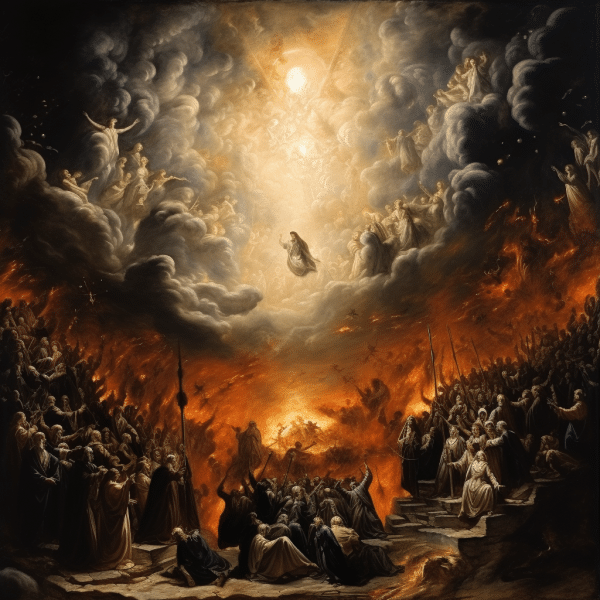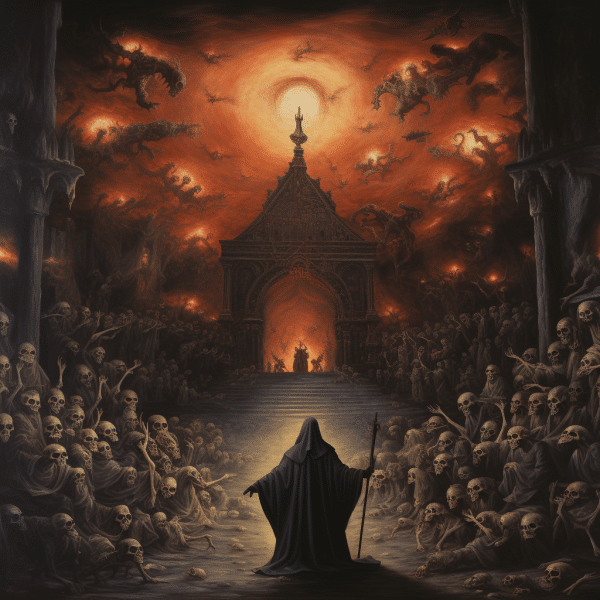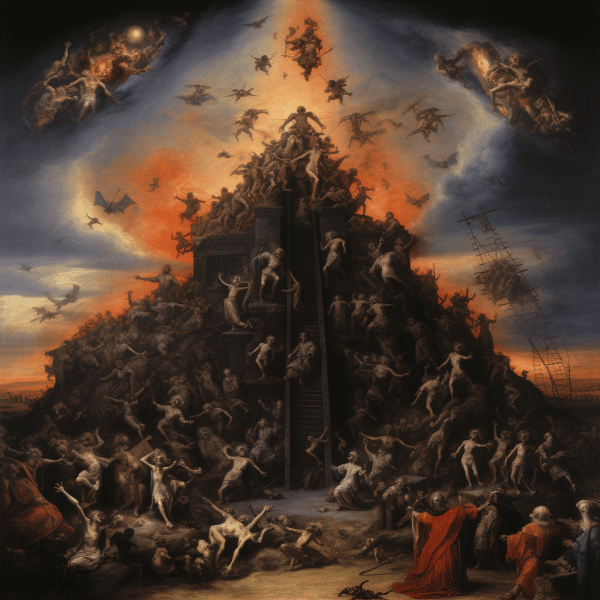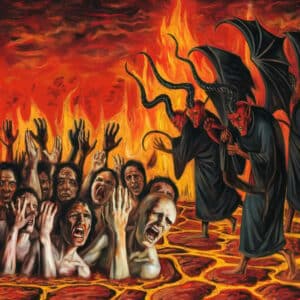

Limbo and Purgatory in Catholic Theology: No one knows what will happen to our souls when we die. But there’s a common belief that our souls would be either in heaven or hell. However, for the Catholics, the afterlife involves waystations, Limbo and Purgatory in Catholic Theology including purgatory, before someone enters heaven or hell.
There have been lots of misconceptions about purgatory and limbo. And if you don’t follow the Catholic doctrine, these may be new terms to you. So, what are limbo and purgatory? Are they the same? How do they differ?
Tune in to learn more about limbo and purgatory.
Limbo vs. Purgatory
Purgatory is a process, rather than a place, where Catholics believe the souls of believers will go to be cleansed of any unconfessed sins before being allowed to enter heaven. This is per revelation that nothing unclean can enter heaven.
On the other hand, limbo refers to a place theorized to exist by some Catholic theologians where unbaptized babies will go upon death. And anyone who dies without the sanctifying grace of baptism will go to hell.
However, the notion of babies who haven’t committed any personal wrong going to hell was very distressing. Hence, the invention of limbo, where unbaptized babies will dwell peacefully without suffering but will not have the presence of the lord.
Nowadays, many Catholics have abandoned the idea of limbo, trusting God that he’ll have mercy for babies who, without their fault, died before receiving the sanctifying grace of baptism.
About Limbo
According to father Colacino, limbo was never a Catholic doctrine but a theological theory explaining the fate of the unbaptized. This idea was developed when early theologians attempted to come to terms with the Gospel of John, stating that those not born in water in the holy spirit will not enter the kingdom of heaven.
On close examination, medieval theologians interpreted the text to mean unbaptized infants would not go to hell, but remain on the fringe of heaven, called limbo. This applies to infants; but what of unbaptized adults who died before the redemption of Jesus?
Categories Of Limbo
Limbo is divided into two categories. They are:
- Limbo of the patriarchs or limbo of fathers
- Limbo of infants
Limbo Of Patriarchs
The limbo of patriarchs refers to a temporary state where those who have died of sins but in the friendship of the lord are kept, as they cannot enter heaven until redemption by Christ is made possible. This concept of limbo confirms that admittance to heaven is possible only through Christ’s intervention.
For instance, the bosom of Abraham in Luke 16:22, which both the Eastern Orthodox and Roman Catholic churches understand as a temporary state of souls awaiting entrance to heaven.
In 1 Peter 3:19, Jesus also preaches to the spirits in prison. The medieval drama sometimes portrays Jesus leading a dramatic assault during the three days between crucifixion and resurrection, where he freed the souls of the just and escorted them triumphantly into heaven.
Limbo of Infants
Recent Catholic theologians seem to stress the hope, not the certainty, that these infants may attain heaven instead of the limbo state. Most Roman Catholic priests and hierarchy say that no child can be condemned for sins committed by our ancestors and that they no longer believe limbo for infants exists.
Note that the Catholic church has a defined doctrine on original sin but not on the eternal fate of unbaptized infants. This leaves theologians free to propose different theories, including limbo, which magisterium can or cannot accept.
About Purgatory
Father Hart says purgatory is not about a place but a preparation for glory where God makes believers perfect for whatever remains in them which is not perfect. According to the Catechism of the Catholic Church, Purgatory is a state of final purification for those who died believers before entering heaven. It refers to the final human imperfection cleansing before entering heaven’s joy.
The Catholic church further says that purgatory is different from the punishment of the damned. And that it entails the final purification of the elect – people God chose to live with him in love and for all eternity.
Father Hart further explains that purgatory is an ancient concept in Judeo-Christian tradition. According to him, Rabbis who lived during Jesus’ time were familiar with the notion.
The council of Trent members urged Catholics not to see purgatory as junior hell, as it’s a different preparation process for glory. Farther Hart says it’s much more of a process than a place in the church’s theology. Here, the pain is much less and more like the pain your eyes experience when you walk from a dark room into bright sunshine. It’s like going from the darkness of death to the brightness of the vision of God.

Conclusion
Limbo and Purgatory in Catholic Theology are two crucial concepts regarding the afterlife in the Catholic church. Limbo is more of a state or place where those who died unbaptized will dwell in a life free of suffering but without the presence of the lord. These will enter the limbo of infants. Then there’s the limbo of patriarchs/fathers, where believers who died before the redemption of Christ will dwell
On the other hand, purgatory is a process where believers will be purified of sins before entering the kingdom of heaven.






